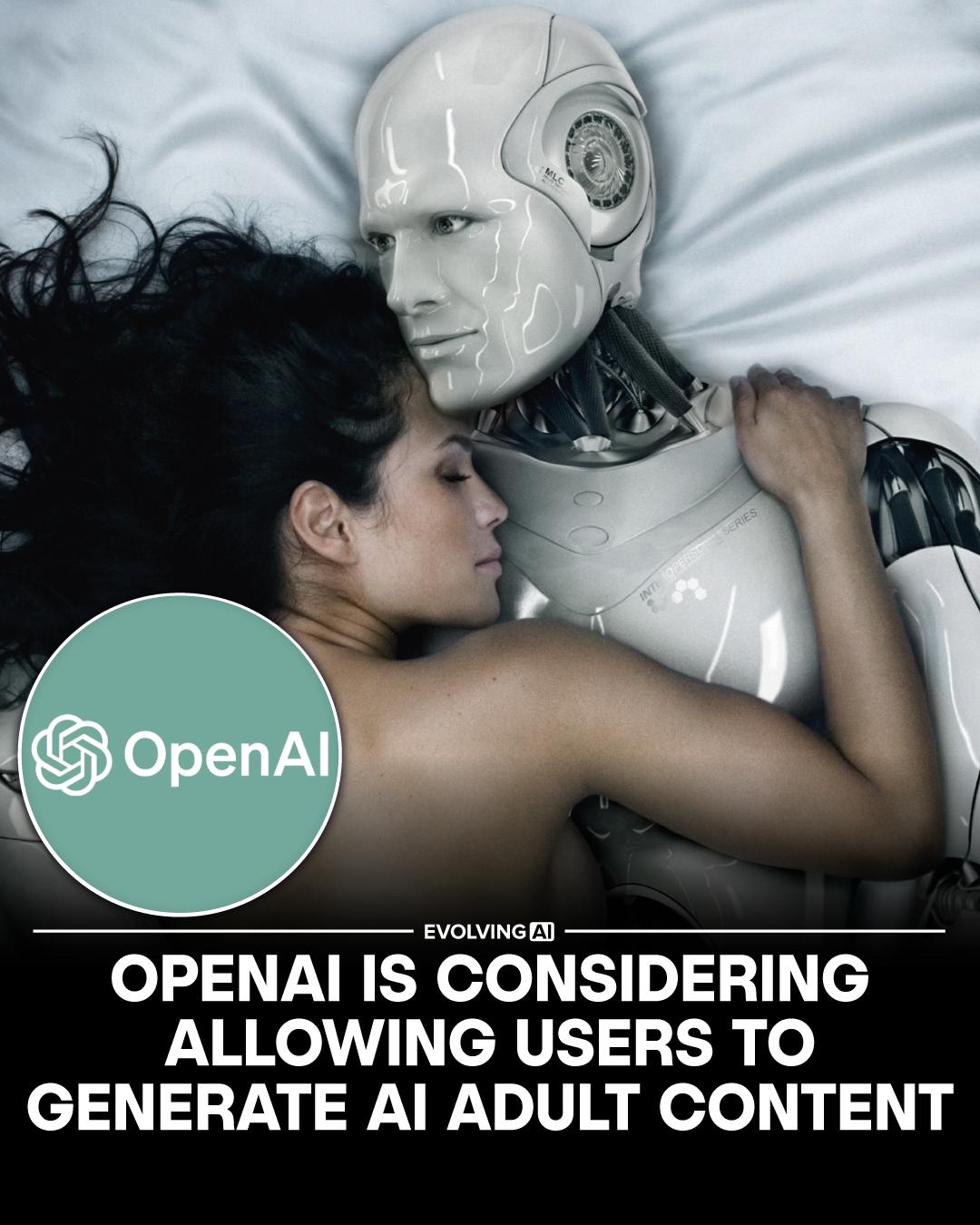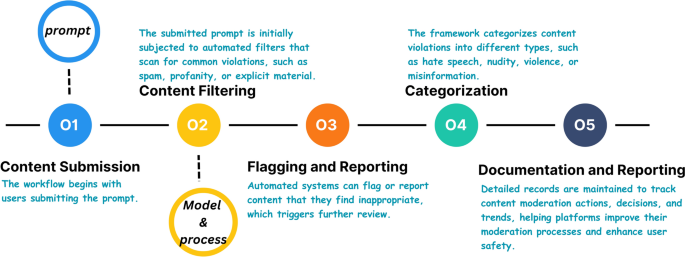ChatGPT to Allow Erotica for Verified Adults: What OpenAI’s Move Really Means

OpenAI CEO Sam Altman announces ChatGPT’s new adult mode for verified users. Explore what AI erotica means for ethics, safety, and digital intimacy.
In a bold announcement that has sparked both curiosity and controversy, OpenAI CEO Sam Altman revealed that ChatGPT will soon allow verified adult users to generate erotic content.
This update, expected to roll out before the end of the year, marks one of the most significant policy shifts in the history of generative AI. Altman described it as part of a broader move to “treat adult users like adults,” signaling a more mature and flexible approach to how artificial intelligence interacts with human creativity and intimacy.
But beyond the headlines, what does this mean for AI, ethics, society, and the future of online expression?
In this comprehensive article, we’ll break down what’s changing, why it matters, and what challenges lie ahead.
1. Background: From Restrictions to Relaxation
When ChatGPT launched in late 2022, it came with strict content filters that prohibited any form of explicit or sexual conversation. Users were often met with curt refusals — even when their prompts were artistic, educational, or romantic in nature.
That conservative moderation policy was part of OpenAI’s effort to prevent misuse and public backlash during the early stages of generative AI.
However, as AI tools matured — and users demanded more creative freedom — OpenAI began to reconsider. In Altman’s own words, “We made ChatGPT pretty restrictive, but that’s changing.”
This change reflects a growing belief that adults should be able to use AI for mature, consensual, and responsible forms of expression — including erotica — provided proper safeguards are in place.
2. What Exactly Did Sam Altman Announce?
In his recent statement, Altman confirmed that ChatGPT will introduce an age-gated mode allowing verified adults to access erotic and romantic story generation features.
He emphasized three main points:
-
Eligibility: Only verified adults will have access.
-
Timing: The feature could begin rolling out by December 2025.
-
Philosophy: OpenAI aims to strike a balance between safety and autonomy.
While details remain scarce, this indicates a controlled rollout where access may depend on regional regulations and platform version (likely ChatGPT Plus or Enterprise accounts first).
Altman’s phrasing — “treat adult users like adults” — captures the shift from a paternalistic moderation model to one grounded in user agency and digital maturity.
3. Why OpenAI Is Making This Move
Several factors may have influenced OpenAI’s decision:
-
User demand: Millions of adults have used AI for creative writing, romance, and roleplay — but were frustrated by overzealous filters.
-
Competitive pressure: Rival platforms like KoboldAI, SillyTavern, and independent NSFW LLMs have already tapped into the “AI companionship” and adult storytelling niche.
-
Cultural normalization: Conversations around AI intimacy, emotional companionship, and sexual well-being are becoming less taboo.
-
Monetization & market segmentation: Introducing an adult tier allows OpenAI to differentiate product access and meet specific user expectations safely.
In short, this is both a philosophical and strategic pivot — positioning OpenAI as adaptable and in touch with user realities.
4. How It Might Work (Technical & Policy Framework)
While OpenAI hasn’t disclosed technical details, here’s how an adult-content mode could logically operate:
-
Age Verification Layer
-
Verification through ID, payment method, or third-party age-check APIs.
-
Repeated verification for new sessions or sensitive queries.
-
Local compliance with regional privacy and data laws (GDPR, COPPA, etc.).
-
-
Content Classification System
-
Models flag input and output based on explicitness level.
-
Filters prevent illegal or nonconsensual themes.
-
Separate submodels or fine-tuned weights for “adult creative” vs. “explicit” content.
-
-
Safety Filters & Human Oversight
-
A safety layer could evaluate text for boundaries like consent, age references, or violent acts.
-
Moderation teams or audits could review flagged outputs periodically.
-
-
Transparency & User Controls
-
Clear disclaimers, safety tips, and reporting tools.
-
Adjustable filters for comfort levels (“romantic,” “mature,” “explicit,” etc.).
-

5. The Ethical & Psychological Debate
Not everyone welcomes this development. Critics fear that AI-generated erotica could blur moral, psychological, and social boundaries.
Potential Risks:
-
Addiction or dependency: Users may form parasocial attachments to AI characters.
-
Dehumanization: Reducing intimacy to algorithmic fantasy could distort real relationships.
-
Exposure risk: If moderation fails, minors could still access explicit content.
-
Consent simulation: Some worry about “consensuality illusions” in synthetic erotica.
Potential Benefits:
-
Safe creative expression: Writers, artists, and storytellers can explore adult themes without involving real people.
-
Privacy and safety: Safer alternative to explicit media that involves exploitation or consent issues.
-
Therapeutic uses: Some therapists suggest erotic storytelling can aid emotional healing, trauma processing, or sexual confidence.
Ultimately, the ethical debate hinges on how responsibly the technology is managed.
6. Legal & Regulatory Hurdles
Erotic or adult content remains a legally sensitive domain across the globe.
Key issues OpenAI will need to navigate:
-
Jurisdictional variation: What’s legal in one country may be illegal in another.
-
Obscenity laws: Many nations still ban or restrict explicit materials.
-
Age-of-consent discrepancies: Verification systems must adapt to local definitions of “adult.”
-
Data protection: Handling sensitive prompts and generated text raises privacy risks.
-
Liability: Who is responsible if AI-generated text crosses into illegal territory?

7. Public Reaction & Controversy
Social media response has been predictably mixed.
Some users applaud the decision as “a long-overdue recognition that adults can handle adult conversations.”
Others express concern that OpenAI is opening a door it can’t easily close.
Public opinion clusters around three narratives:
-
Freedom advocates — support autonomy and artistic liberty.
-
Safety advocates — worry about exposure, addiction, and legality.
-
Ethics watchdogs — focus on normalization and consent representation.
The conversation is likely to intensify once the feature is actually released.
8. Comparison: How Other Platforms Handle Adult AI
OpenAI isn’t the first to explore this frontier. Several lesser-known AI platforms have been experimenting with adult or NSFW content creation for years:
| Platform | Policy Approach | Key Limitation |
|---|---|---|
| KoboldAI | Open-source with opt-in NSFW mode | No moderation control |
| Character.AI | Strictly bans explicit material | Users jailbreak around filters |
| Replika | Initially allowed romantic & erotic chats, later banned them | Lost users after censorship |
| NovelAI | Offers creative freedom for adult storytelling | Paid access, limited oversight |
What differentiates OpenAI’s move is scale and accountability — mainstreaming adult content within a trusted, corporate-controlled ecosystem.
9. Scenarios: What Could Go Wrong
-
Underage Access via Shared Accounts
Risk: Minors gaining access through parents’ or shared logins.
Mitigation: Two-factor authentication and age verification per session. -
Prompt Engineering to Evade Filters
Risk: Users tricking the model into generating disallowed content.
Mitigation: Continuous retraining and rule updates. -
Cross-Border Legal Conflicts
Risk: Outputs that violate local decency laws.
Mitigation: Region-specific policy filters. -
Data Privacy Violations
Risk: Erotic conversations stored or leaked.
Mitigation: Local data processing and privacy transparency.
10. The Future of Erotica in AI
This move represents more than policy change — it’s a cultural turning point in how AI and human intimacy intersect.
Erotic expression, long stigmatized yet fundamental to art and human experience, is now entering a new phase: one mediated by algorithms, filters, and digital ethics.
If handled responsibly, OpenAI could pioneer a safer, more ethical model for adult AI content — emphasizing consent, safety, and user education.
If mismanaged, it could fuel controversy, legal backlash, and public mistrust.
Either way, the era of AI-assisted intimacy has begun.
11. Final Thoughts
OpenAI’s decision to permit erotic content for verified adults reflects a maturing approach to AI governance — one that acknowledges that creativity and sexuality are deeply human experiences.
But maturity comes with responsibility.
The question is not just can AI write erotica — but how it can do so safely, ethically, and respectfully.
As with every frontier technology, success will depend not on algorithms alone, but on the principles guiding their use.
FAQ Section
Q1: When will ChatGPT’s adult mode be available?
A: OpenAI has not confirmed an exact date but indicated rollout could begin before the end of 2025.
Q2: Will this feature be available to free users?
A: Likely not. Access may be restricted to verified adults on paid plans for compliance and safety reasons.
Q3: Can users control what kind of adult content they receive?
A: Yes. Expect customizable filters — “romantic,” “mature,” or “explicit” — with consent reminders.
Q4: What protections exist for minors?
A: Mandatory age verification, multi-layered content filters, and parental controls.
Q5: What if users misuse the system?
A: OpenAI will likely enforce strict moderation and account bans for violations involving illegal or harmful content.
Conclusion
The coming months will determine whether OpenAI’s bold experiment succeeds or backfires.
If executed with caution, transparency, and empathy, this could redefine digital intimacy — responsibly.
But one thing is certain: the conversation about AI, sexuality, and freedom is only just beginning.





